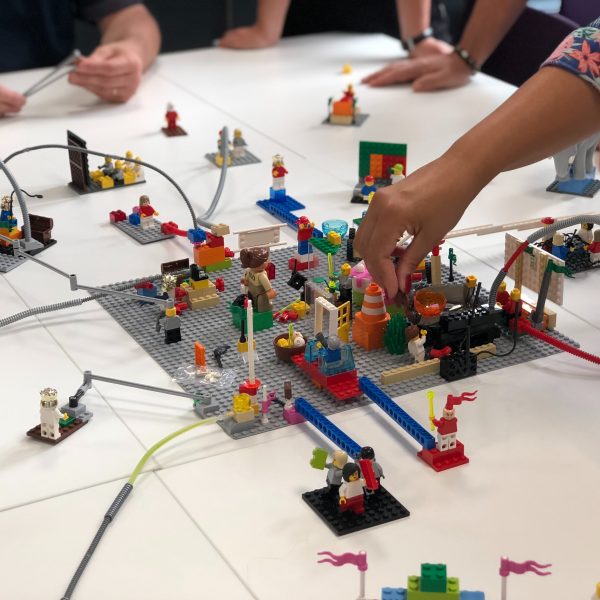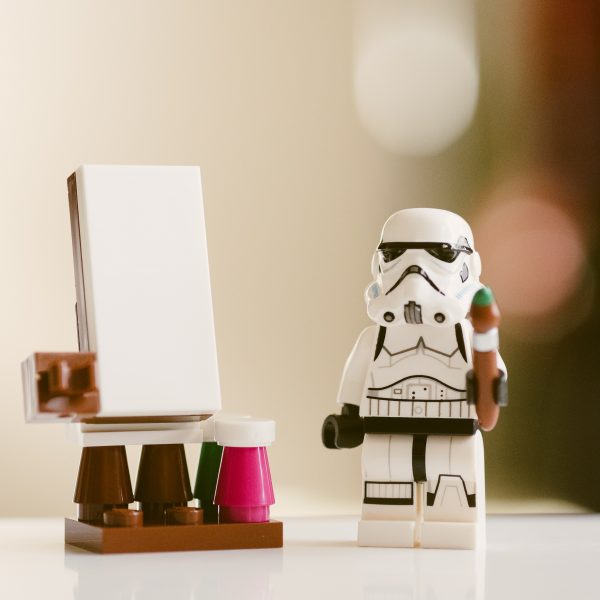LEGO Australia study shows the impact of play as a tool of unity

A new study from LEGO Australia has showcased the impact play has on bringing children together and building bonds with those from different backgrounds, cultures and abilities.
While three in every four parents believe that having their children associate and socialise with children from different backgrounds, cultures and abilities is the most effective way for their child to understand the world around them, one in three are unsure about how to make these connections happen.
LEGO Australia commissioned the ‘Building Bridges’ report to recognise the impact of play in helping children develop skills for learning about people that don’t “look like them”.
Mending the disconnect
With the festive season serving as a reminder of the vast diversity in Australia, LEGO Australia sought to showcase the potential of play in connecting families.
To deepen the understanding of the Building Bridges findings, LEGO Australia conducted the Social Play Experiment – a social experiment designed to examine how children’s interactions can influence their understanding of others.
Led by child psychology expert Dr Penny Van Bergen, the experiment brought together children who had not met, and were of varied backgrounds across cultures, abilities and ages. The experiment looked to compare groups of children across two different rooms – one was devoid of play or stimulation, the other was an environment filled with toys and joyous scenes.
“We saw the power of play bring children together,” Dr Van Bergen said.
In the blank room, children were awkward and shy, avoiding interaction, sitting in uncomfortable silence, visibly unsure how to interact with the others around them.
When introduced to the play-rich environment, their behaviours transformed. The children introduced themselves to one another for the first time, collaborated on building projects, and came alive over their shared passion for creative expression.
“Play is critical for so many aspects of children’s development,” the doctor continued.
“When children play with others, they have fantastic new opportunities to practise their social skills, stretch their imagination, develop empathy for others, and co-create new inventions they might not have thought of alone.”
“It was fascinating to see how quickly the children transformed when they were given the opportunity to play together in the Social Play Experiment. Play really is a universal language.”
Having access to open ended resources, such as LEGO bricks, is especially important for unstructured play, she continued.
“LEGO bricks are a fantastic way of unlocking the power of play, offering children a creative outlet to work towards a common goal while fostering understanding and collaboration. One of the benefits of creative play is that it is unscripted, so children have the opportunity to interact with others, to observe how others think, and to engage together with the world around them. It’s those experiences that help children to bond and connect.”
Play builds more bridges than music, sports or screen time
The in-person findings were supported by data from the Building Bridges report, which found two in three (64 per cent) parents emphasised creative play as the most effective form of play to improve the understanding of children with different cultural backgrounds or abilities, when compared to role-play and pretend play, sports and music, and digital play.
“This Christmas, we’re encouraging kids to use the power of play to bring the magic of the festive season to life as one,” said Troy Taylor, Vice President and General Manager of LEGO Australia and New Zealand.
“Children across the country will each experience Christmas uniquely, and our findings show that creative play can be a tool to transform an ordinary interaction into one of extraordinary meaning and value,” he added.
The Building Bridges report paints a powerful picture of the impact play has on a child’s development, with almost 100 per cent of those surveyed saying that play is important to develop social skills.
An interesting finding was that 43 per cent of parents and carers of children who identify with a culture other than Australian noticed that play improved their child’s understanding of different cultures, whereas 64 per cent of carers raising children with a disability believe play improved their understanding of different abilities.
“As a society, we want to continue to look for opportunities to bring children together. Play is such an important way of doing that. Within families, however, we should also look for opportunities to play when we can. It’s amazing what children can come up with, ” Dr Van Bergen said in closing.
Popular

Policy
Practice
Provider
Quality
Research
Workforce
Beyond the headlines: celebrating educators and the power of positive relationships in early learning
2025-07-07 10:00:24
by Fiona Alston

Workforce
Policy
Quality
Practice
Provider
Research
ECEC must change now, our children can’t wait for another inquiry
2025-07-02 07:47:14
by Fiona Alston

Workforce
Quality
Practice
Provider
Research
Beyond the finish line: Championing child protection one marathon at a time
2025-07-08 09:15:32
by Fiona Alston













